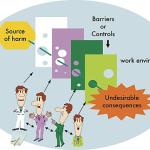Identifying characteristics are essential to ensuring patient safety - so that the right treatment meets the right patient. Did you ever consider how many times you are asked your name and date of birth when seeking medical care?
patient safety
One thing is for certain in our so-called broken “health system,” devaluing and eroding of the doctor-patient relationship is par for the course these days, typically a first measure without any thoughtful consideration of the profound and extensi
Here is the headline, "Trump administration rule could stop public reporting of hospital infections despite death toll," taken from the
Authors of a newly published piece in The New England Journal of Medicine sought to provide an analysis of who ought to be responsible for obtaining a patient’s consent.
It was such a privilege and honor for me to be invited by the incomparable Suzi Abrams and Jewish Family & Children’s Services of Southern Ne
For healthcare to improve, we need to look at the outcomes of our actions and activities, identify the source of our errors and do better.
Sad and scary times are upon us if patient safety is your priority. Assuring medical care delivery is in a patient’s best interest while being as cost-effective as possible should be the goal of a health insurer.
Media headlines have run amok over the so-called “stunning admission” obtained during a deposition of a former Aetna medical director whose job was to author
Often considered meaningless use or meaningful abuse by those who actually practice medicine, the so-called meaningful use reform legisla
We all tend to do certain things because “it’s just what you do” or out of passive acceptance of conventional wisdom. In the medical realm especially, it’s always important to reassess the why.












